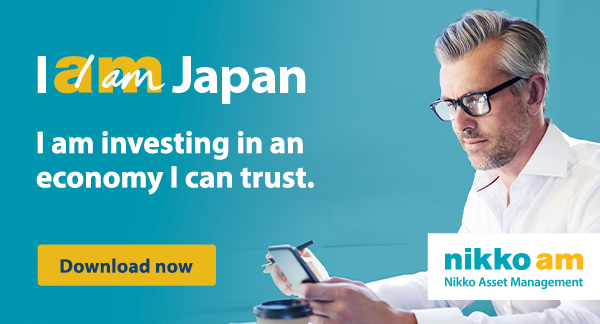Insights
Investment Insights by our experts and thought leaders
A year later: five reasons we're still bullish on Japan
by , — 20 February, 2025
In March 2024, after the Nikkei Index reached an all-time high, we offered five structural reasons why Japan's economic resurgence was more than just a flash in the pan. Almost a year later, those
five reasons remain just as relevant for investors considering an allocation to Japan.
The speed at which AI applications are becoming part and parcel of daily life is breathtaking, with DeepSeek's apparent breakthrough merely accelerating an inevitable, fundamental change in the field.
We firmly believe these breakthroughs are the key components needed for sustainable, long-term returns.
New Zealand Equity Monthly (January 2025)
by , — 13 February, 2025
The New Zealand equity market paused for breath and dipped in January after posting significant gains towards the end of 2024. Some of the market’s decline reflected a dent in enthusiasm for
consumer-facing and cyclical stocks. Global market jitters also appeared to have an impact with disruption risk coming to the fore.
New Zealand Fixed Income Monthly (January 2025)
by , — 12 February, 2025
Although the arrival of a new year has brought some optimism after a tough 2024, economic activity remains subdued in New Zealand. The Reserve Bank of New Zealand may further cut interest rates in
2025 with global uncertainties impacting the country's economy.
Navigating Japan Equities: Monthly Insights From Tokyo (February 2025)
by , — 07 February, 2025
This month we discuss signs of improvement in the Bank of Japan (BOJ)'s market communication following its recent rate hike; we also focus on Japan's economic resilience amid a flurry of trade-related
headlines impacting the markets.
Balancing Act: Global Multi-Asset Quarterly (Q4 2024)
by — 05 February, 2025
In the 2024 October-December quarter, risk assets largely moved in line with expectations surrounding the US presidential election. We maintained an overweight position on growth assets over the
quarter amid indications of resilient economic conditions. Our view of defensives improved with higher yields having made this group of asset classes more attractive.
The Fed takes a leaf from the BOJ’s book and applies gradualism
by , — 30 January, 2025
The Federal Reserve is seemingly following in the footsteps of the Bank of Japan and adopting a strategy of monetary policy gradualism. This measured approach is aimed at balancing rate cuts with inflation expectations and stabilising the economy without triggering price volatility.
Balancing Act Monthly Insights: Global Multi-Asset (January 2025)
by — 29 January, 2025
We retained our positive view on growth on resilient economic data and dovish monetary policies globally as inflation is now closer to central bank targets worldwide. Our view of defensives improved
as higher yields now make the asset class marginally more attractive.
BOJ hikes amid trade uncertainty: focus on AI’s indirect role in risk reduction
by , — 27 January, 2025
The BOJ increased overnight rates by 25 basis points, raising the Mutan call rate to its highest since 2008. The decision reflects the BOJ's belief that the economy is performing in line with its
view, with positive real wage growth and an upgraded near-term inflation outlook. Uncertainty over US tariffs persists, but Japan's need for AI-related technologies may play an indirect role in
reducing trade-related risks.
How Japan can safeguard against US tariffs
by , — 16 January, 2025
The future of US policy is surrounded by great uncertainty, particularly regarding tariff measures that the US may impose upon its trading partners. We explore options that are available to Japan to
safeguard against tariffs the US may decide to implement.
Harnessing Change-Monthly Insights: Asian Equity (December 2024)
by — 16 January, 2025
Despite concerns about Donald Trump's impact on emerging markets, historical data shows that during his first term as US president, China, South Korea and Taiwan outperformed the S&P 500 although they
are the most trade-sensitive equity markets.
On the Ground in Asia-Monthly Insights: Asian Fixed Income (December 2024)
by — 15 January, 2025
We expect Asian local government bonds to perform well in 2025, supported by accommodative central banks amid an environment of benign inflation and moderating growth. The ongoing global easing cycle is expected to lower global yields, further supporting Asian bond markets.
Politics, governance reform and engagement opportunities in Japan equities
by , — 14 January, 2025
Following the surprise result of the snap election in October 2024, Japanese politics has entered a very unique phase. We discuss how the fluid political situation could positively impact the Japanese
market, which is already feeling the benefits of corporate governance reform, and assess how engagement could play a role in improving shareholder returns in such an environment.
Navigating Japan Equities: Monthly Insights From Tokyo (January 2025)
by , — 10 January, 2025
This month we discuss how a rise in delistings reflects efforts to create a more attractive equity market; we also assess ways in which a merger by large automakers in Japan could stimulate reforms
beyond the industry.
Balancing Act Monthly Insights: Global Multi-Asset (December 2024)
by — 26 December, 2024
We retain our positive view on growth on resilient economic data and dovish monetary policies globally as inflation starts to ease worldwide. As for defensives, sovereign bond curves are steepening
amid the beginning of the global rate-cutting cycle and bonds are gradually becoming more attractive.
Fed and BOJ in a wait-and-see mode amid uncertainty over US fiscal and trade policies
by , — 23 December, 2024
The Fed and the BOJ both made interest rate decisions that were in line with market predictions, with the former cutting interest rates and the latter standing pat on policy. However, uncertainty
around future policies and potential impacts of U.S. fiscal and trade policy changes have led to market volatility.
Yanagi Model in practice: analysis of TOPIX firms links ESG factors to shareholder value
by ,
by ,
by ,
by ,
by ,
by ,
by , — 18 December, 2024
Our comprehensive analysis of the Yanagi Model, which provides an example of how sustainability issues have become a key part of corporate governance practices, showed that ESG integration can drive
shareholder value. The significant correlations found, especially in social and governance factors, require our attention; moreover, the analysis shows that integrating ESG factors is essential for
long-term value creation.
New Zealand Fixed Income Monthly (November 2024)
by , — 18 December, 2024
In what has turned out to be an eventful year for interest rates, one of the major factors for New Zealand's bond market in 2024 has been the impact of monetary policy. We expect the Reserve Bank of
New Zealand to continue monetary easing in 2025. In addition to monetary policy, the forthcoming Trump presidency will be another key factor for the bond market in the coming year.
New Zealand Equity Monthly (November 2024)
by , — 17 December, 2024
The Reserve Bank of New Zealand began cutting interest rates late in 2024 and is anticipated to ease further in 2025. The interest rate environment is expected to be a positive factor for the equity market, which has seen the retail and property sectors suffer in particular under higher rates.
Global Investment Committee’s outlook: growth cycle may continue but mind the fatter tails
by , — 13 December, 2024
We have upgraded our near-term economic outlook for the US and anticipate Japan's "virtuous circle" to remain intact. Predicting the timing of any cyclical market downturn remains challenging.
However, we also highlight heightened tail risks associated with policy disappointments in the US going into 2025. We continue to see risks as biased towards the inflationary, and we also foresee
expansionary US fiscal policy as ultimately unsustainable.
Harnessing Change-Monthly Insights: Asian Equity (November 2024)
by — 12 December, 2024
China has been feeling the pressure with Donald Trump due to return for his second term as US president. However, during Trump's first term China actually outperformed the S&P 500 index, which
demonstrates the importance of domestic policies over external pressure.
Navigating Japan Equities: Monthly Insights From Tokyo (December 2024)
by , — 11 December, 2024
This month we evaluate factors expected to attract attention in 2025 from a Japanese economy and equity market perspective. And as the government compiles another stimulus package, we discuss how
Japan could be about to test the Laffer curve theory, which argues that tax cuts can actually increase overall tax revenue.
On the Ground in Asia-Monthly Insights: Asian Fixed Income (November 2024)
by — 10 December, 2024
Asian local government bonds are positioned to perform well in 2025, supported by accommodative central banks amid an environment of benign inflation and moderating growth. We expect Asian corporate
and bank credit fundamentals to stay resilient, aside from a few sectors and specific credits which may be impacted by tariff threats or US policy changes.
Global market and economic outlook 2025
by , — 05 December, 2024
In 2025, US economic growth is expected to continue due to fiscal stimulus, despite above-target inflation. Meanwhile, the strong dollar could face disruptions, the Bank of Japan may keep raising
interest rates and China is seen balancing domestic stimulus with potential US tariffs. European growth may recover slowly due to US tariff risks, and global central banks' policies will likely
diverge to manage these challenges.
Global equity outlook 2025
by — 05 December, 2024
Throughout history, equity investors have benefitted from maintaining a long-term view and an optimistic outlook on humanity's ability to prevail in the face of adversity. This might once again be the
case, meaning that the biggest risk might be not having exposure to the highest quality earnings streams through a diversified portfolio of global equities.






























